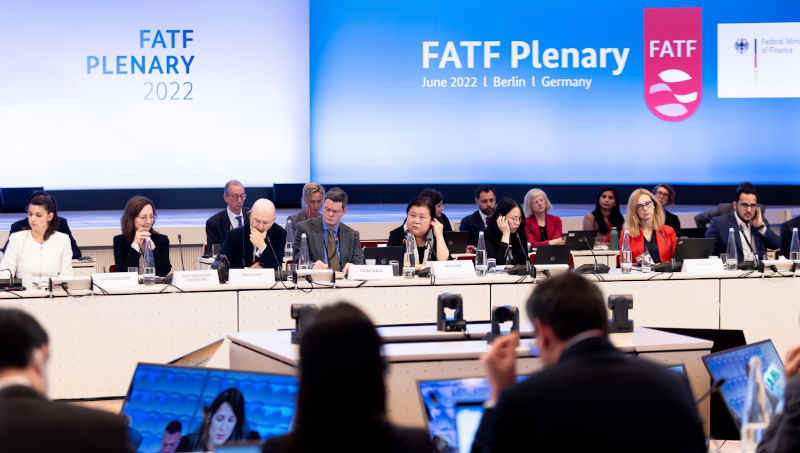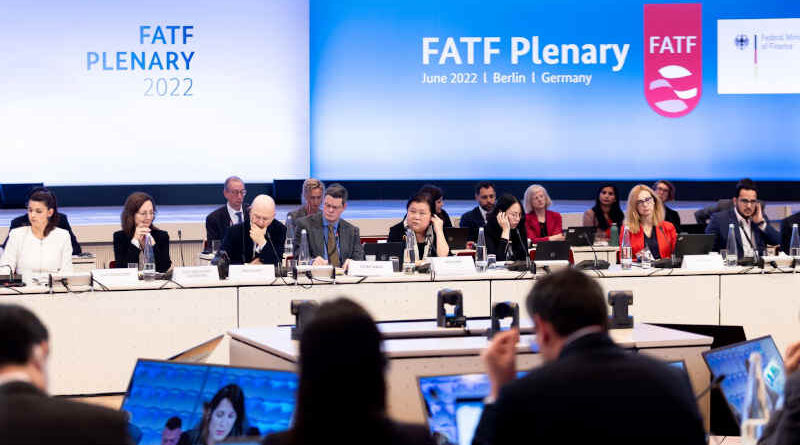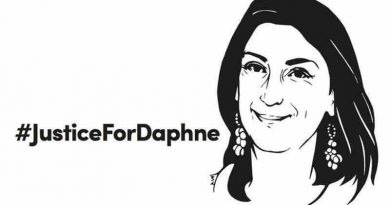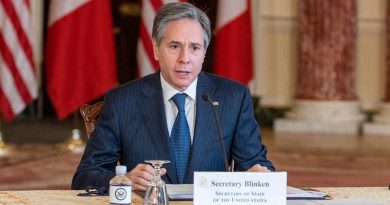FATF Explores Technology to Combat Money Laundering

Delegations heard an update on ongoing work, which includes efforts to help countries more effectively recover criminal assets.
The last Plenary of the Financial Action Task Force (FATF) – which leads global action to combat money laundering and terrorist financing – under the German Presidency of Dr. Marcus Pleyer concluded on June 17, following four days of hybrid meetings in Berlin, Germany.
Delegates from over 200 jurisdictions of the Global Network participated in these discussions, with a significant number of participants once again able to travel for on-site meetings. The FATF expressed its deepest sympathies for the people of Ukraine and continues to deplore the huge loss of life caused by the ongoing Russian invasion of Ukraine. As a result of the invasion, FATF agreed to severely limit the Russian Federation’s role and influence within the FATF.
FATF members approved a report that will help the real estate sector to better detect and prevent money laundering, and finalized a targeted update on implementation of the FATF requirements on virtual assets and virtual asset service providers. FATF also approved releasing a white paper for public consultation on potential revisions to Recommendation 25 on transparency and beneficial ownership of legal arrangements.
Under the German Presidency, the FATF made it a priority to explore the opportunities and challenges of digitalisation in the fight against money laundering and terrorist financing. At this Plenary, the FATF finalised a report that shares good practices and recommendations for combating money laundering and terrorist financing by sharing information while adhering to data protection and privacy.
This is the first report that provides tangible examples of information sharing initiatives with analysis of the data protection implications. It highlights the importance of collaboration and cooperation between anti-money laundering and data protection authorities.
Delegations heard an update on ongoing work, which includes efforts to help countries more effectively recover criminal assets. The Plenary agreed to start new work that includes a project on countering the laundering of proceeds from ransomware attacks and an update to the FATF best practices paper on combating the abuse of NPOs.
Responding to the request from FATF ministers to advance the FATF’s efforts to combat the laundering of illicit proceeds of corruption, the Plenary also agreed to undertake new projects on the misuse of citizenship and residency by investment schemes, guidance for assessors on how to assess implementation of the United Nations Convention Against Corruption, and a horizontal review on how the non-financial sector facilitates corruption.
Delegates welcomed a commitment by the incoming FATF Presidency of Singapore to push forward the strategic priorities identified by FATF Ministers in April this year.
The Plenary was preceded by the Working Group meetings from 6 to 13 June and the Digital Transformation Conference, also hosted by the German government in Berlin, on 11 June, which brought together private and public sector anti-money laundering (AML) / counter terrorist financing (CFT) leaders, experts in innovative technologies and data protection authorities to discuss the use of new technologies to mitigate money laundering and terrorist financing threats.
💛 Support Independent Journalism
If you find RMN News useful, please consider supporting us.




